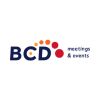Over the summer, US Life Sciences organizations received welcome direction from both PhRMA and AdvaMed on whether meals could be provided in conjunction with virtual educational programs. In fact, each association published guidance documents on the topic. It is important to ensure that the respective Code’s rules related to educational and training be followed. However, in times of crisis, more clarity is needed, and that is just what these guidance documents offer. Here, we look at the most notable changes from each.
Compliance tips for Serving food at virtual Life Sciences programs in the US
AdvaMed recommends that companies:
1. Create a process to control meal ordering and delivery, addressing health and safety issues, and ensure that the meals are not used as an inappropriate inducement.
TIP: You can do this by being mindful of when meals are offered, the time of day you provide meals, the modesty/cost of the items and do not use them as an inducement.
2. Track attendance to validate that only appropriate recipients of the training/education are receiving the meals and specify that no home delivery will be permitted.
TIP: Work with both the online technology tool to track attendance and request sign-in-sheets be circulated and collected by the office manager then collected by the company representative.
3. Specify that no home delivery will be permitted.
PhRMA advises that:
Currently, the presence requirement in its code can be met through the virtual “presence” of the representative offering informational presentations remotely over video or audio conferencing. The informational presentation can be accompanied by the delivery of a modest meal to HCPs and members of their staff, according to Section 2 of the PhRMA Code, provided that:
1. The representative remains virtually “present” over video or audio throughout the event,
TIP: Use online technology to track and verify their presence.
2. Meals should only be provided where there is a reasonable expectation that HCPs will remain present throughout the event.
TIP: Again, maximize the value of your online webinar platform by using its reporting features to verify attendance. Further, don’t forgo the use of sign-in sheets just because the program is virtual. If a meal is served, a sign-in sheet should be used.
“Take-out” meals and “dine & dash” programs are still not appropriate.
TIP: It’s best to keep meals to normal mealtime hours. “Dine and dash” meals are prohibited, so if a meal is served at 3pm (well past the standard noon lunchtime), it’s likely that leftovers would be taken home, thus providing benefit to others beyond the HCP and staff.
3. Meals offered should otherwise comply with the provisions of Section 2 of the PhRMA Code, including that the meal should be modest as judged by local standards, provided in a manner that is conducive to informational communication and is limited to an in-office or in-hospital setting, and a healthcare professional’s spouse or other guest should not be included.
4. Finally, meals shouldn’t be provided where they are prohibited by the policies of the HCP office or healthcare facility.
- Companies are reminded to consider the health care facility policies regarding contactless delivery, food handling, and limitations on meal sharing. TIP: Office/practice managers can easily provide this information.
- Meals should continue to be limited to “in-office or in-hospital” settings.
TIP: While not specifically mentioned, it is inferred that home delivered meals should not be provided.
Want to learn more? Our Speaker Bureau Management team within BCD Meetings & Events are experts in this area. This specialized group of meeting planners are knowledgeable consultants who coordinate thousands of pharmaceutical speaker programs each year.

